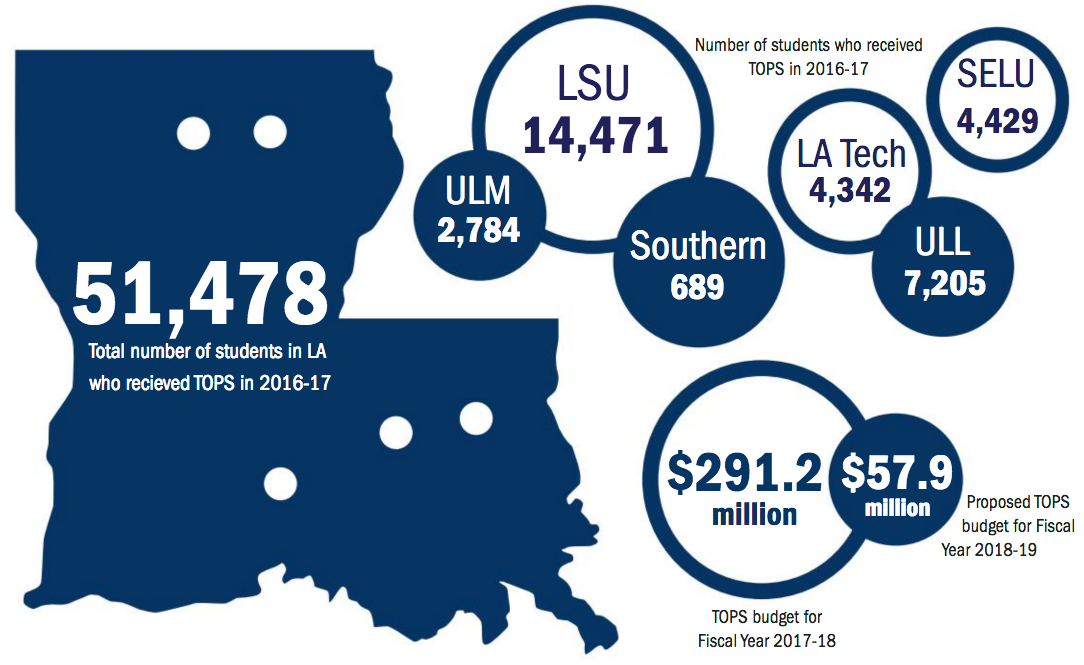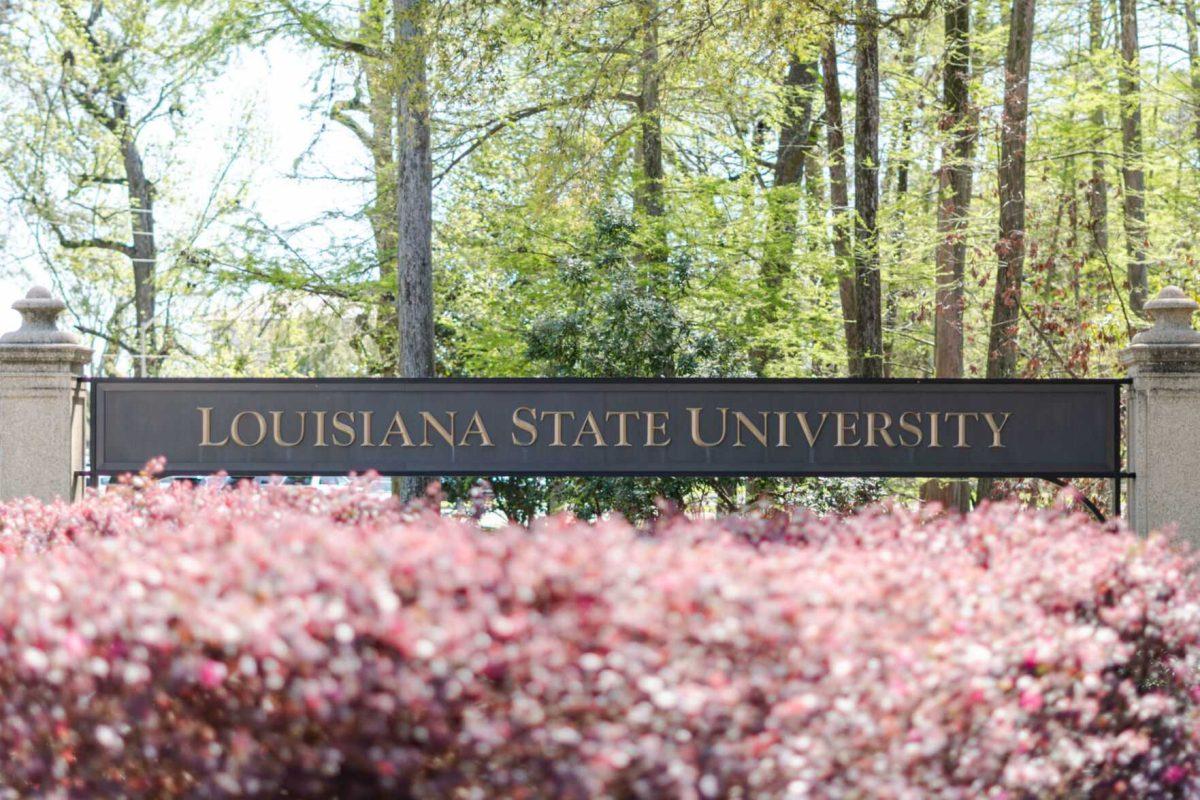Higher education leaders’ worst fears were confirmed Monday when Gov. John Bel Edwards presented a doomsday budget for Fiscal Year 2018-2019, gutting the popular TOPS scholarship program and slashing higher education funding again.
The Taylor Opportunity Program for Students, which pays tuition for in-state students earning a minimum 2.5 GPA and 20 on the ACT, was stripped of $233.3 million of state general fund support, leaving the program with only $57.9 million for the upcoming fiscal year. Higher education also took a heavy hit, suffering a $25.6 million cut.
In the 2016-17 Academic Year, 51,478 students in Louisiana received TOPS, according to the Louisiana Office of Student Financial Assistance. The University has more students receiving TOPS than any other institution in Louisiana, with 14,471 students receiving TOPS in the 2016-17 academic year.
Edwards was disinclined to propose the cuts, but with a temporary 1 percent sales tax expiring July 1, roughly $1 billion in state funds will be lost.
“There’s not a cut in that budget proposal that I’m advocating for,” the governor said when presenting his proposal to the Joint Legislative Committee on the Budget. “Not a single one.”
LSU Media Relations Director Ernie Ballard said the University stands in support of TOPS and hopes lawmakers will move quickly to limit families’ insecurities.
“This is the beginning of the state’s budget process and nothing [is] finalized at this point,” Ballard said. “LSU supports TOPS, and we would like to see a resolution as quickly as possible on TOPS funding and the higher education budget, so current and prospective students and families can make their college decisions with confidence.”
This is not the first time higher education and TOPS have been on the chopping block. In the past nine years, higher education funding has been cut 16 times.
Cuts to higher education in 2016 left the state unable to pay students’ full award amounts. Student awards were instead funded by 93.06 percent in the fall semester and 47.63 percent in the spring.
Under the roughly 76 percent cut in Edwards’ proposed budget, the TOPS program would only be able to fund a percentage of each student’s award, similar to how the program was funded in 2016.
“What I propose is that we pay for TOPS,” Edwards said, urging lawmakers to find a way to balance cuts with revenue generation. He repeated during committee that he believes the “significant increase” in applications to local universities are a result of the Legislature’s choice last session to fund TOPS for this year.
Higher education leaders have expressed concerns that continued waffling on higher education funding and uncertainty about TOPS could drive potential students to leave the state.
In an op-ed article in The Advocate on Jan. 10, LSU President F. King Alexander pleaded with legislators to take necessary measures to support and finalize funding for higher education before Louisiana students seek enrollment elsewhere.
“To put it bluntly, this is a serious human capital issue for Louisiana, as we watch the next generation of talented students become the future economic assets of other states,” Alexander wrote.
Alexander expressed concern that Louisiana students would be scared away to institutions outside of Louisiana if the uncertainty of TOPS continues through the official college selection date on May 1.
“We can tell students what an exceptional education we offer, and we can show them the achievements and accolades our previous students have had, but when their parents read headlines that proclaim Louisiana is preparing for another set of budget reductions, it’s hard to combat the impression that leaves,” Alexander said.
Edwards said there is still time to fix the budget. State law prevents the Legislature from approving revenue-raising measures during even-numbered years, requiring the Legislature to call a special session to avoid making disastrous cuts when the regular session convenes in March.
Edwards has pushed for a February special session, but said he is unwilling to convene the Legislature if House Republicans cannot reach a consensus on the measures they’re willing to support. Edwards said he is frustrated the Louisiana GOP has been slow to bring ideas to the table, while Republicans have said Edwards’ proposals to date have been too vague to give a full picture of the state’s fiscal situation.
The governor said he, Senate President John Alario, R-Westwego and House Speaker Taylor Barras, R-New Iberia, are in agreement that a special session must happen in February, and called on lawmakers to join together for the sake of the state.
A special session could be called in June if lawmakers fail to compromise, but the tight timeline would give universities little room to adjust course before their budgets take effect July 1. By that time, lawmakers also noted, students will have already chosen other universities.
“We can do this,” Edwards said. “There’s a majority in this Legislature, in the House and in the Senate, that want to permanently fix this cliff and allow Louisiana to move forward and prosper … Let’s prove that we are better than what’s going on in Washington.”









